This week I have Susan Broadwater visiting here. After some time off-line, she’s back on line with The Regency Library. It’s a research service for anyone who needs information about the Regency. She also runs the email list Regency Library. I was a longtime subscriber and now that she’d back, well, I’m back, too. I asked her if she’d be interested in doing an interview here because she’s been researching the period for so long, I thought Risky Readers would enjoy hearing from her.
I’m offering one commenter a year’s subscription to The Regency Library email list.
About Susan
Susan Broadwater lives in Charlottesville, Virginia. In 1996 she opened Moonstone Research and Publications and began providing private research services and Regency and Research Libraries, e-mail based subscription services. Susan is a graduate of Asbury University and holds a masters degree in Theology from Emory University. Currently she is focusing most of her time on Regency and Research Libraries.
The Questions
1. Why the Regency? What got you interested in the period?
I always loved Regency romance novels. I devoured everything I could find by Mary Jo Putney, Jo Beverley, Stella Cameron and others. Then I got involved in the online services. This was in the mid-90s when online was basically three or four services and there was no widespread access to the actual internet. By the late 90s this changed and I became involved with Carmel Thomaston’s Painted Rock Writers Colony to provide research materials. At that time there was very little to be found online regarding the Regency period so I began to accumulate materials in order to provide them to writers who needed them. After Carmel’s death I basically took the regency part of the materials I had collected and began Regency Library. For other time periods and materials Research Library was created.
2. Where do you find your materials? Did you just have a big pile of stuff at your house?
I live in Charlottesville, Virginia and worked for the University of Virginia for 16 years. They have one of the best libraries in the country and what they don’t have they can get it for you. I used a lot of their materials at first. Then I discovered right across the street from the library in a little alley an antiquarian book store, which had a good selection of 18th and early 19th century materials. I began buying as I could afford the books. Later there was E-bay and I even met (through a now defunct list) a university professor who was giving his collection away. He knew what I did and sent me about 400 books which included Gentleman’s Magazines, European Magazines and half a year (1814) London Times among other goodies. I’m still going through this stuff. Eventually I had to distribute the collection over three rooms of the house and turned one bedroom into an office and another into a library.
Sometimes you come across things in very unusual places. When I was dropping off my taxes to be done the receptionist was still at lunch so instead of waiting in my car I went to a pawn shop that is located next to the tax preparer’s to look for CD’s and DVDs. Instead of that I found an 1812 Ackermann’s Repository—with all its plates—price $50.00. I asked the pawnbroker how he had come to have this in his shop and he said that he paid 15.00 for it and usually didn’t take such things but felt sorry for the person pawning it. I bought it and asked him why he hadn’t researched it online to see what it was worth. He said he had tried but could not find a full volume on E-bay. I distributed some of the plates from this last week to the Regency Library. Of all places to obtain Ackermann’s this was the one I never would have thought of in a million years.
I got another year of Ackermann’s in the meantime. I left a number for the pawn broker and he called me up and told me he had another set — cost more this time but wasn’t too bad and well worth it.
3. What’s the most surprising/unusual thing you’ve come across? Anything that made you laugh?
I am currently getting an exhibit together for the regency library website that involves Ladies Court Costume and court etiquette. I came across a description of one worn to the Queen’s birthday that was decorated with fossils! Had to read it twice because I couldn’t believe it. There is also a picture of the Princess of Wales in a court dress that was published in La Belle Assemblee in 1807. Just looking at that dress and her in it makes me laugh every time.
4. One thing I’ve noticed is when you spend a significant amount of time research a certain subject, one day you realize that your knowledge has become a resource in itself — you know that x and y happened, but you’re able to make connections between all the various sources. I imagine you as this treasure trove of knowledge retained from your work. Can you talk a bit about your view of the Regency period and how it’s changed (or not) over time?
I recently helped with Noel Ivor Hume’s biography of Belzoni as a literary researcher. This is when I realized that there was a connection between the actual facts of the history of that time and that literature could provide extra facts and clues to help illuminate the history and in this case it actually brought a clearer picture of Belzoni’s wife Sarah through Lady Morgan’s writings (both fiction and non-fiction) and even through the fashions of the day. There was actually a fashion plate in a Lady’s Monthly Museum showing the Belzoni fabric that was fashionable. Sometimes you go on one quest and end up somewhere you really didn’t expect to go and learning about someone that had basically been pretty much overshadowed by her husband.
I’ve learned a lot since I started with Regency Library not only about the facts of the history of that time but also a lot about the human side of the people who lived at that time. My view of it is that it’s not too different than our own when it comes to the human nature and foibles.
5. Do you read fiction? What kind?
I read historical romance—just about any time period but love Regencies and Westerns. I also read classics like the Bronte’s. I like mysteries also. My favorites are Ann Perry’s Monk series. If a book is good or sounds good from the back cover I’ll try it out. We do have a used book store here and that’s the only place I can find the old gothics so I buy some Victoria Holt and Phyllis Whitney when they have them—which is rarer and rarer now.
6. If you won a bazillion dollars, I know you’d buy me a fancy house, but what’s the second thing you’d buy?
A full, complete set of Ackermann’s Repository. Saw one at ABE for a mere 27,000! Was in great condition though.
7. Favorite Regency outfit?
I like that hat.
8. You have an email-based group called Regency Library. Can you tell us a little bit about about what it is?
The Regency Library distributes both primary and secondary research documents weekly to subscribers. The documents range from late 18th century to 1830 and come from a wide variety of resources. I try to select documents that shed light on the manners and customs, basically the everyday life of the people who lived during this time period. I try to include fashion plates from one of the periodicals La Belle Assemblee, Ackermann’s, Ladies Monthly Museum and Lady’s Magazine. When I go looking for something to include in the week’s distribution I try to find something that is interesting, informative and sometimes funny. I lately came upon a book (found it through a review in one of the above mentioned periodicals) that was published in 1821 and was used for evening entertainments at home. It got a particularly bad review because the forfeit for losing some (actually more than one) of the games included too much kissing! I had to have a copy of this book and found one through ABE Books and bought it. It will be serialized this year on the list. Subscribers receive approximately 30 or 40 documents a month and we do serialize entire books/periodicals so it’s a good way for people to have searchable copies of materials without having to pay the price for owning the entire book.
9. What do you have planned for the Regency Library over the next few months?
I’m going to serialize that game book. We’ll also continue with one of my favorite research projects which are travel accounts of foreigners to England during the time period. I’m also delving into accounts of English travelers to the US during the time period because they tend to compare manners and customs in England with American manners. I want to begin making a list of what I intend to distribute during the month and send it to all subscribers with some alternative documents listed, and if they want to opt out of some of the regular things, they can substitute from the alternatives or put in an individual request. I want to tailor the list as much as humanly possible to the subscriber’s needs. I announced this to the list and the only exception would be if a request is really off the wall and I couldn’t fill the request. I’ll try to look for what is requested but if I can’t find it then it would not be done. In all the years of doing this there have been only two instances where I could not find an answer for a question either because the records had been destroyed or were in private hands in England. I’m also going to distribute tips for doing research—like reading the reviews in some periodicals to find some real gems. Last but not least, I want to begin distributing a puzzle game weekly—crosswords, riddles, etc. that center around the Regency time period.
The Contest – Rules and Such
Void where prohibited. Must be 18 to enter. No purchase necessary. Winner will be chosen at random. Multiple comments do not increase your odds of winning. Odds of winning depend on the number of entrants and your ability to follow the rules.
To enter, leave a comment to this post by midnight Pacific March 29, 2013.

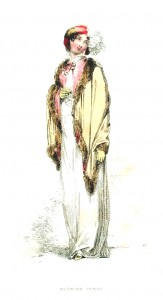

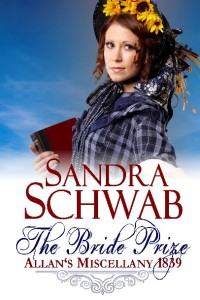
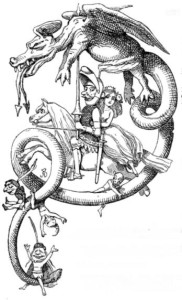

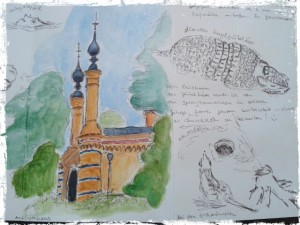

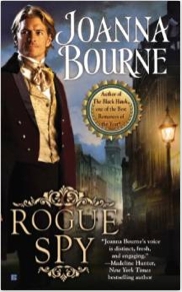
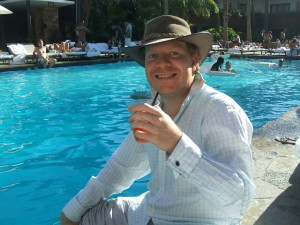
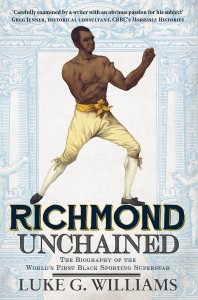
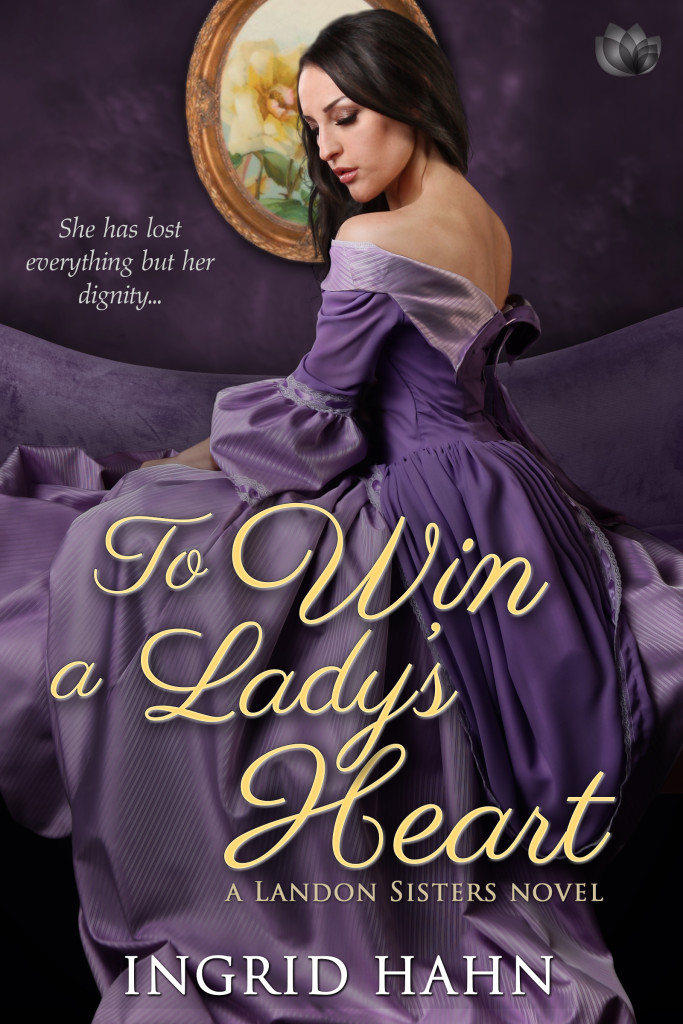 Today I’m very excited to welcome debut author Ingrid Hahn to the Riskies with her book To Win a Lady’s Heart. Welcome, Ingrid and congratulations!
Today I’m very excited to welcome debut author Ingrid Hahn to the Riskies with her book To Win a Lady’s Heart. Welcome, Ingrid and congratulations!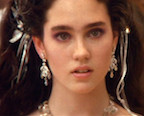 Oh! Well. Even though physically she’s not as I imagine my heroine, Grace, I would want a young Jennifer Connolly. Nobody can do unassumingly powerful and secretly vulnerable like Jennifer Connolly. She’s probably a little too beautiful to be Grace, not the Grace isn’t beautiful, but we could let that point slide.
Oh! Well. Even though physically she’s not as I imagine my heroine, Grace, I would want a young Jennifer Connolly. Nobody can do unassumingly powerful and secretly vulnerable like Jennifer Connolly. She’s probably a little too beautiful to be Grace, not the Grace isn’t beautiful, but we could let that point slide. For my hero I’d want a complete unknown. Someone highly trained on the stage who can do incredible acting with minute expression changes and through his eyes. I’d want the glossy magazines to all be crying in outrage: ‘They cast WHO to play John Merrick?’ and ‘Our list of who we would have cast.’ And then for him to become a huge, iconic star always best known for his breakout role in the movie made from my book.
For my hero I’d want a complete unknown. Someone highly trained on the stage who can do incredible acting with minute expression changes and through his eyes. I’d want the glossy magazines to all be crying in outrage: ‘They cast WHO to play John Merrick?’ and ‘Our list of who we would have cast.’ And then for him to become a huge, iconic star always best known for his breakout role in the movie made from my book.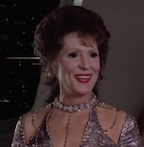 For the Landon Sisters’ mother, Lady Bennington, there is no question. She’s one part Mrs. Bennet, one part —Deanna Troi’s mother in Star Trek: The Next Generation. So she’d definitely have to be played by the (very beautiful) late Majel Barrett.
For the Landon Sisters’ mother, Lady Bennington, there is no question. She’s one part Mrs. Bennet, one part —Deanna Troi’s mother in Star Trek: The Next Generation. So she’d definitely have to be played by the (very beautiful) late Majel Barrett. Ingrid Hahn is a failed administrative assistant with a B.A. in Art History. Her love of reading has turned her mortgage payment into a book storage fee, which makes her the friend who you never want to ask you for help moving. Though originally from Seattle, she now lives in the metropolitan DC area with her ship-nerd husband, small son, and four opinionated cats.
Ingrid Hahn is a failed administrative assistant with a B.A. in Art History. Her love of reading has turned her mortgage payment into a book storage fee, which makes her the friend who you never want to ask you for help moving. Though originally from Seattle, she now lives in the metropolitan DC area with her ship-nerd husband, small son, and four opinionated cats.